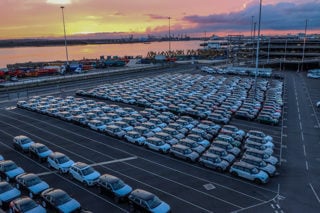The Chancellor of the Exchequer, Rishi Sunak, has delivered a bleak assessment of the UK’s finances, warning that the coronavirus crisis would create lasting damage to growth and jobs.
The number of people out of work is expected to surge to 2.6 million people by the middle of next year, with the unemployment rate hitting 7.5%, its highest level since the financial crisis in 2009.
The Office for Budget Responsibility (OBR), however, says that fewer jobs are expected to be lost than predicted this summer.
Nevertheless, the UK economy is expected to shrink by 11.3% this year and not return to its pre-crisis size until the end of 2022.
Outlining how much would be spent on public services in the Spending Review to MPs in the Commons yesterday (Wednesday, November 25), Sunak said the Government was dealing with an "economic emergency".
He revealed that the Government had already spent £280 billion to help support the economy through the coronavirus and will spend a further £55bn next year to support the recovery.
The UK is expected to borrow £393.5bn this financial year and borrowing is forecast to remain above £100bn-a-year - or 4% of the size of the UK economy - in five years’ time.
“The Government must also avoid placing a crushing tax burden on businesses,” Gerry Keaney, BVRLA
The Chancellor also announced a £100bn of capital expenditure next year, to kickstart growth and support jobs.
It gives multi-year funding certainty for select projects – such as transport schemes – and targets additional investment in research and clean energy sources, investing in a greener future by delivering against the Prime Minister’s ten-point plan for climate change.
It has been backed up by the launch of the new National Infrastructure Strategy, to coincided with the Spending Review, outlining the Government’s long-term vision for infrastructure investment, and a new UK infrastructure bank - headquartered in the north of England - to work with the private sector to finance major new investment projects across the UK.
Fleets ‘need support not tax rises’
The British Vehicle Rental and Leasing Association (BVRLA) welcomed the Government’s focus on some key electric vehicle (EV) charging infrastructure priorities.
“Amidst some very sobering news on UK national debt, unemployment and economic growth, it is reassuring to see that the Government is still willing to invest billions of pounds in supporting the transition to zero emission road transport,” said BVRLA chief executive Gerry Keaney.
“We are now working to a far more aggressive ICE vehicle phase-out target, so it was also great to see the Government focussing on some of the key challenges outlined in the BVRLA’s recent Road to Zero Report Card – particularly the requirement to invest in grid infrastructure ahead of demand and the need to help SMEs and leaseholders.”
The National Infrastructure Strategy emphasised the need for motoring tax revenues to ‘keep pace’ with the uptake of EVs, and Keaney has urged Government to work with the fleet sector to ensure that this is done in a timely, effective and proportionate way.
“The Government’s future motoring tax strategy has to strike a very fine balance,” he continued. “Yes, it needs to maintain vital revenues and encourage people into newer and cleaner vehicles.
“The Government must also avoid placing a crushing tax burden on businesses and individuals that are unable to upgrade their cars, vans or trucks and are already struggling to cope with the economic implications of the Covid-19 pandemic and EU-exit.”
Mike Hawes, chief executive of UK trade body the Society of Motor Manufacturers and Traders (SMMT), says that the welcome initial funding for a significant rollout of electric buses, vehicle charging points and consumer incentives, the Chancellor has “recognised that the Road to Zero is a long-term aspiration”.
Likewise, Hawes argues that delivering a green industrial revolution for all will need a long-term investment plan.
“UK Automotive can help every region across Britain to level up – but this hinges on keeping auto retail open in any future lockdown scenario, securing a tariff-free trade deal with the EU, and delivering on the scale of investment needed to achieve net-zero ambitions," he said.
“Together, these will result in far greater long-term prosperity and security than today’s announcements alone.”
Support for electric vehicles
The Government confirmed extensions to grant schemes targeting the home, workplace, and on-street EV charging sectors, extended schemes to target harder-to-electrify leaseholders and small and medium-sized enterprises, and confirmed £950m will be deployed to support rapid charging along the strategic and A-road networks. Additionally, new funding has been made available for local authorities.
Dr Nina Skorupska, chief executive of the Renewable Energy Association (REA), said: “The outputs of this Spending Review demonstrate that the government is closely listening to the needs of the EV charging sector.
“By confirming extensions to home, workplace, and on-street charging grants, providing extra funding to ensure grid connections along the strategic road network are ready for rapid charging hubs, and introducing targeted financial support for local authorities to deploy infrastructure, investors, developers, and drivers can be assured that the Government is committed to ensuring this sector grows at pace.”
David Borland, EY’s UK automotive Leader, believes that the UK can be a long-term competitive player in automotive manufacturing if there is significant investment in battery development, production and the associated supply chain.
“The investment confirmed in the Spending Review is a welcome step in the right direction for both the UK automotive sector and consumers,” he said.
“The consumer grants will reduce the impact of the higher purchase price of electric vehicles, and will be an important factor in the shift to zero emission vehicles.
“Investment in the energy sector and charging infrastructure is also a critical step forward, alleviating the concerns of many potential EV buyers around ready access to charging at home, charge time and range anxiety. But given recent estimates of the number of charging points needed across the UK to support mainstream EV adoption by consumers, further investment may still be needed.”
Local roads funding
Rick Green, chair of the Asphalt Industry Alliance (AIA) said that, while the spending commitments are welcome in challenging times, the sums outlined will not be enough to plug the existing multi-billion pound backlog in road maintenance funding.
“What’s needed going forward is an additional investment of £1.5bn a year for 10 years, to improve the experience of all road users, support recovery and deliver a much-needed boost to the economy,” he said.






















Login to comment
Comments
No comments have been made yet.